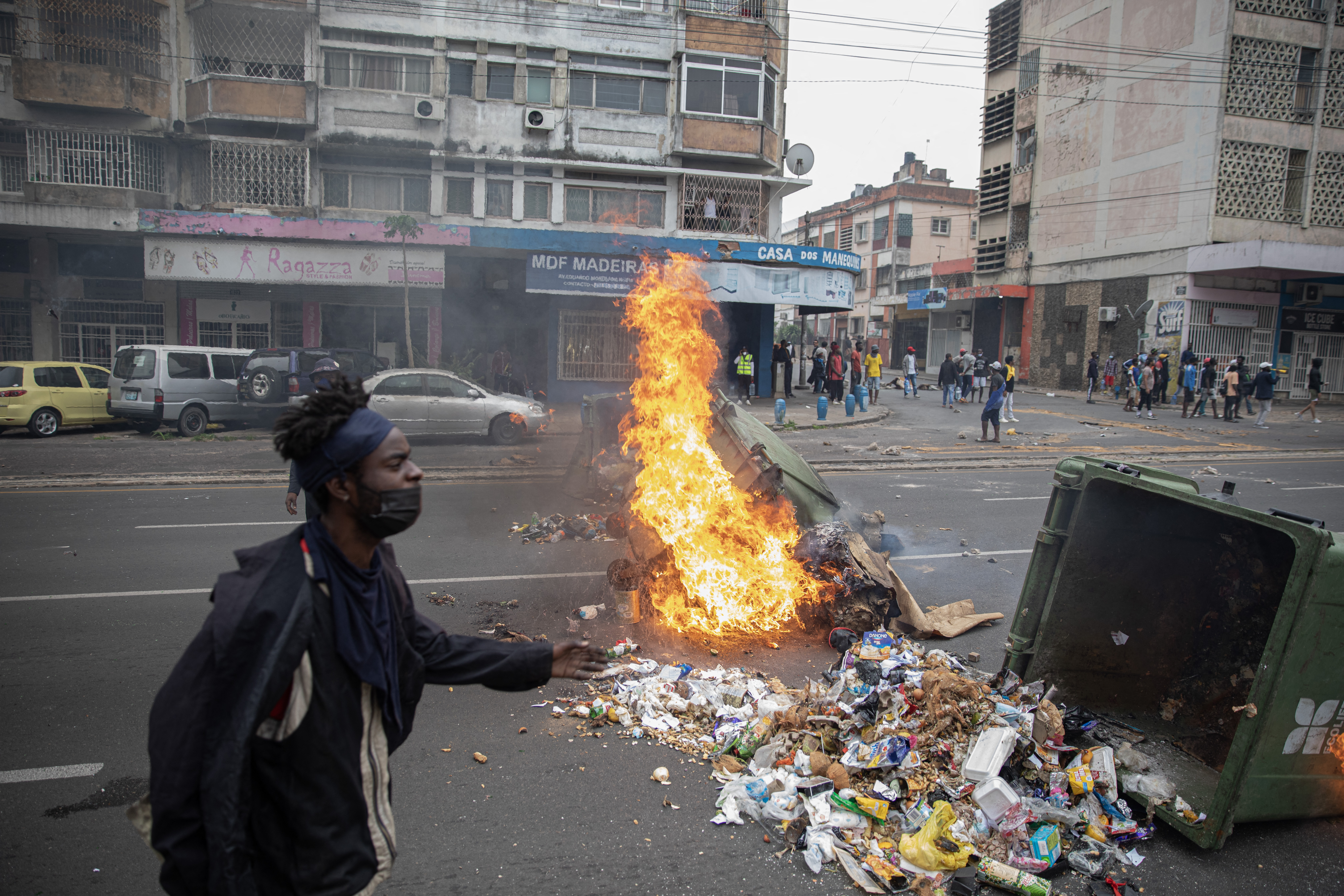The current wave of protests in Mozambique has unearthed painful memories of state brutality, violence, oppression and impunity, which echo from a past many believed long buried. These recent events prompt a sobering question: has the state’s approach to protest truly evolved since the pre-democratic era, or are we trapped in a post-democracy déjà vu?
Mozambique’s authorities are dismantling the country's hard-earned democracy by violating their own Constitution, which guarantees freedom of expression and assembly and the right to protest. Not only does this repression undermine national laws, but it also contravenes international treaties and conventions that Mozambique has signed or ratified.
Peaceful protests are essential to a functioning democracy, serving as vital avenues for accountability and expression, especially for those who feel marginalised or aggrieved. Democracies depend on lawful dissent to remain robust, yet Mozambique’s increasing criminalisation of protest is a dangerous departure from these democratic principles.
Protest is by definition an expression of dissent and act of disapproval. For much of Africa, protest was historically suppressed under the heavy hand of colonial regimes and oppressive legal systems. The eventual shift to democracy brought hope of liberation from such repression, promising a political environment where freedom of expression and assembly would be respected. However, as African countries transitioned to independence, the remnants of colonial-era control embedded in laws and law enforcement practices appear to have endured, with state responses to protest now often resembling the old systems of control and suppression.
The ongoing internet shutdown in Mozambique to manage post-election unrest reflects this, as African states continue to implement traditional and contemporary forms of repressive tactics that impact on fundamental rights, including freedom of expression, assembly and access to information.
With the adoption of a range of methods – varying from legal restrictions on physical violence to digital shutdowns – internet shutdowns have become a common tool in the playbook of authoritarian tactics on the continent, often deployed during times of political unrest or large-scale protests. By cutting off internet access, states can prevent citizens from organising, mobilising and documenting state abuses, effectively silencing dissent and keeping information flows under strict control.
Countries such as Togo, Sudan, Uganda and Zimbabwe have repeatedly imposed internet blackouts or restricted social media access under the guise of maintaining “public order”. Internet service providers (ISPs) find themselves in a challenging position during government-ordered internet shutdowns: comply and risk violating user rights, or refuse and risk losing their operating licences. Many governments impose shutdowns for “public order” or “national security”, leaving ISPs with limited options and a potential backlash from the public and civil rights advocates. As international bodies increasingly label shutdowns as human rights violations, ISPs are caught between legal compliance and the ethical duty to maintain open access. Some ISPs are now pushing for legal reforms and transparency to avoid this conflict.
The Economic Community of West African States (Ecowas) Court has set a crucial precedent by ruling that internet shutdowns violate human rights, a decision that underscores the need to protect digital freedoms across Africa. Unfortunately, following the tragic assassination of Mozambique opposition party lawyer Elvino Dias on Friday, 18 October 2024 , efforts to challenge Mozambique’s internet shutdowns have been severely limited. His assassination underscored the serious security risks facing lawyers and activists who take on cases that scrutinise state actions, especially those that address the growing trend of digital repression.
Mozambique is reportedly still challenged by widespread judicial corruption and political interference, adding further obstacles, creating an environment where holding the government accountable for human rights violations, including internet shutdowns and police brutality, is nearly impossible.
The lack of a functioning Southern African Development Community (SADC) Tribunal compounds the difficulty. With the tribunal’s dissolution in 2012, SADC member states lost a crucial mechanism for addressing state overreach and protecting human rights across the region. This absence has left citizens and civil society in Mozambique and other member countries vulnerable to unchecked government abuses, with no regional court to pursue justice and accountability.
The challenges faced by Mozambique today underscore the pressing need for a regional judicial body like the SADC Tribunal to protect human rights. For more background on the importance of regional mechanisms, see the Mike Campbell (Pvt) Ltd vs Republic of Zimbabwe (2008) ruling, which highlights the tribunal’s role before its dissolution, and the Southern Africa Litigation Centre’s insights on the impact of the tribunal’s absence on justice across southern Africa.
Read in Daily Maverick: SA feels impact of fresh violence and escalating clampdown in Maputo amid disputed election
This past week alone, at least 11 people have died, and dozens more have been injured due to violent clashes with security forces. Reports indicate that Mozambique’s police and anti-riot forces used live bullets and tear gas on protesters, with some individuals as young as one year old affected by tear gas exposure. More than 50 people suffered gunshot wounds, and around 400 individuals were detained amid allegations of looting, public disorder and other protest-related offences. Yet the internet connection still has not been restored.
This moment calls for urgent global solidarity and a re-evaluation of state conduct towards protest, including law enforcement's role in either supporting or suppressing public dissent. Peaceful, unarmed protest is not a crime, it is a last resort for many, a means of calling attention to pressing social issues. Attempts to criminalise it, whether through police force, restrictive laws or internet shutdowns, directly violate both national and international commitments to democratic freedoms. Now more than ever, the world must stand firm in defending democratic spaces, condemning any act that seeks to silence peaceful dissent. DM
Sithuthukile Mkhize is the head of the Civil and Political Justice Programme at Centre for Applied Legal Studies based at Wits University, and Omhle Ntshingila is the project coordinator at Right2Protest.
Maverick Citizen
Protest is not a crime — Mozambique’s struggle for freedoms in a fragile democracy




